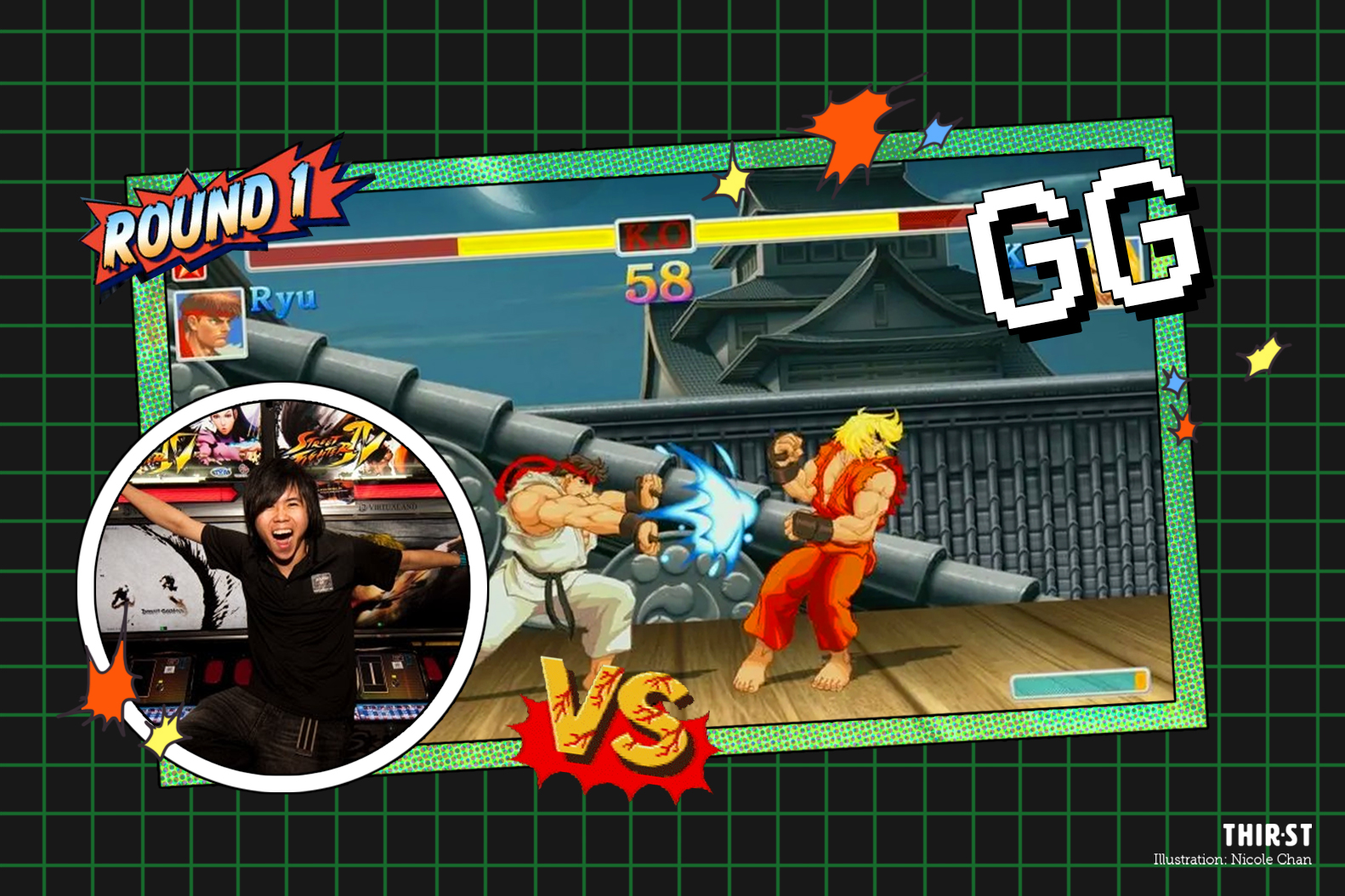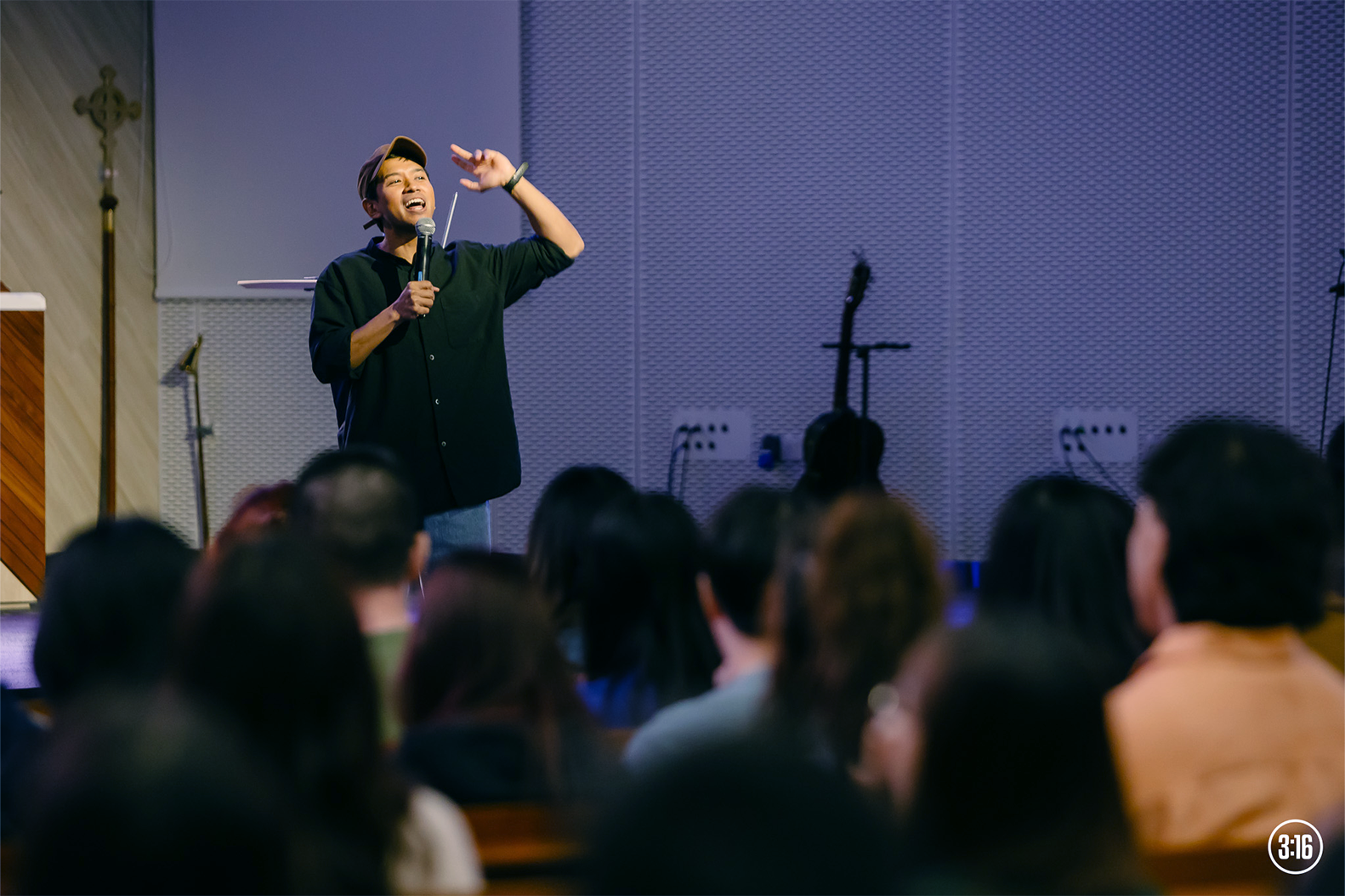Ever heard of the arcade game Street Fighter 2? Back in the day, Lang Tien was one of its fiercest competitors and even one-time promoter. That was how he began running a company that organised tournaments for fighting games, before serving as a youth and young adult pastor for a time.
Fresh out of Singapore Bible College, we sat down with the father of one ahead of the launch of his new gaming ministry — G.G. — and the life journey that inspired it.
I’ve been gaming for a long time — around 30 years — since I was five or six.
My mum is Filipino, so I grew up in Singapore and spent my teenage years in the Philippines before coming back here for National Service.
My mum was actually the one who got me into gaming! One of the ways she would connect with us was by bringing out the Nintendo for us to play together.
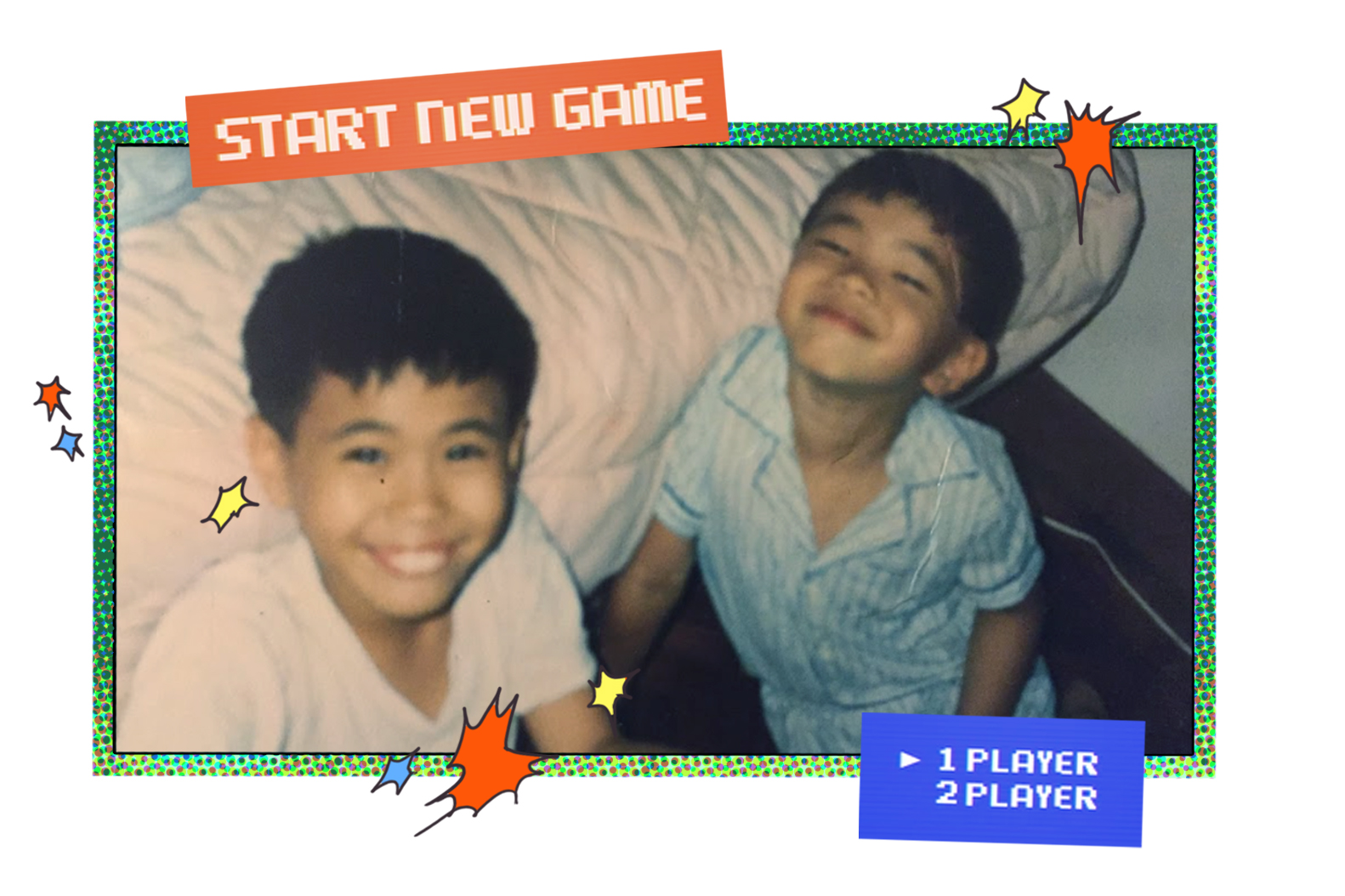
I remember us both getting really into this game called Wings. It’s an old game — a shoot ’em up.
Back then there were no save files. We would play and then at bedtime, leave the TV switched on and put a cordon around the console with a piece of paper saying “don’t touch”.
After school, I looked forward to coming back and continuing with my mum. There were a couple of times when someone tripped over the wire and we lost our saved game, but we just kept trying!
My mum passed away a year ago after battling cancer, and I’ll always treasure this fun memory I had with her.
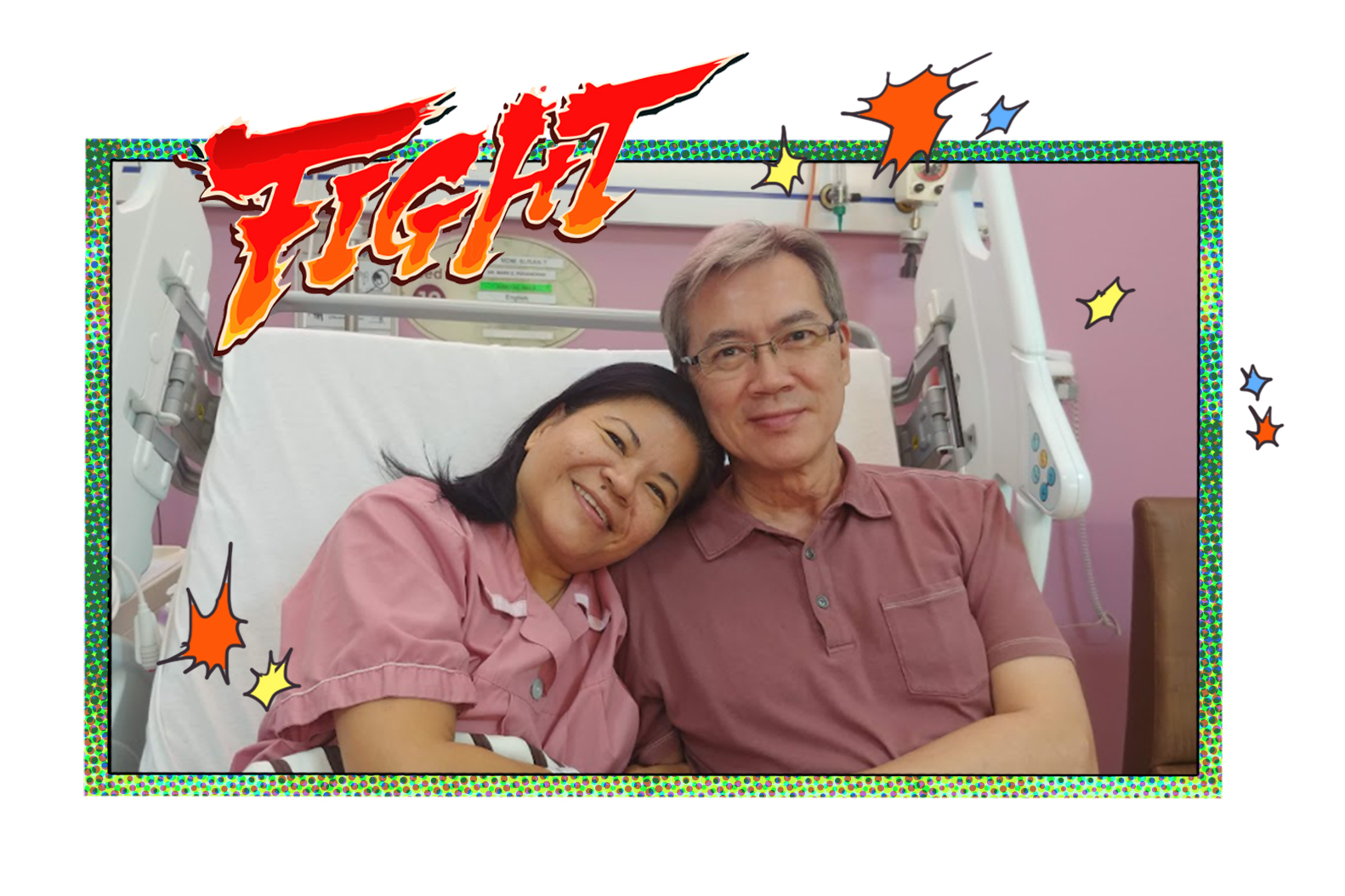
Another memorable experience was when I was seven. That was when I first touched Street Fighter 2 in an arcade in the Philippines.
It was a transformative experience for me even though I had no idea what I was doing. I put in some pesos, mashed some buttons and won! And then my opponent had to get up and leave.
That was when I asked my cousin: “Did I just take his money?” My cousin replied: “Yeah, he can’t play anymore because you beat him.”
That stuck with me. Something I did in a game made some guy walk away in real life. He had to go and buy tokens again because I won.
FIGHTING GAMES AND FAST FRIENDS
As I continued playing, I came to be mentored in Street Fighter by a German-Thai guy in the Philippines. He had a rival who was the best player in Singapore.
When I came back to Singapore, I was known as “the German’s apprentice” and was immediately accepted into the community — just because I was linked to a great player.
It opened my eyes: the arcade became a place where I could go to, no matter where I was in the world, and find people that spoke the same language.
It transcended borders. It helped me to connect with people.
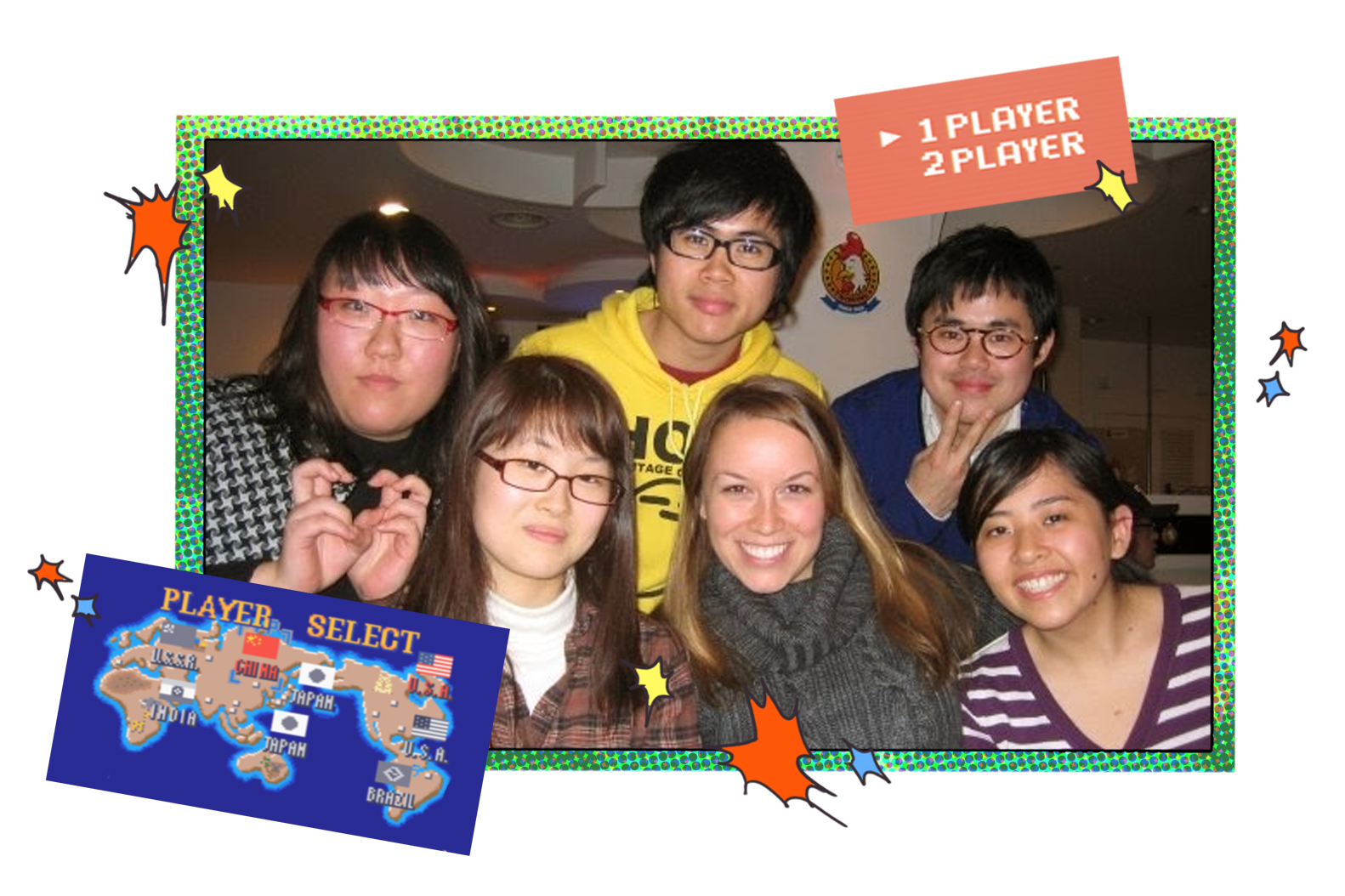
For instance, I was determined not to hang out with the Singaporeans when I was on exchange in Seoul, so I immediately went to the arcade and made friends.
For some reason, I became this foreigner who united the players in Busan and Seoul. I had friends in both cities, and they hated each other’s guts.
But eventually, because of me, the north and the south got together and actually started talking and even created their own tournaments!
Through that, I saw the potential of how a gaming community can bring people together in a very, very positive way.
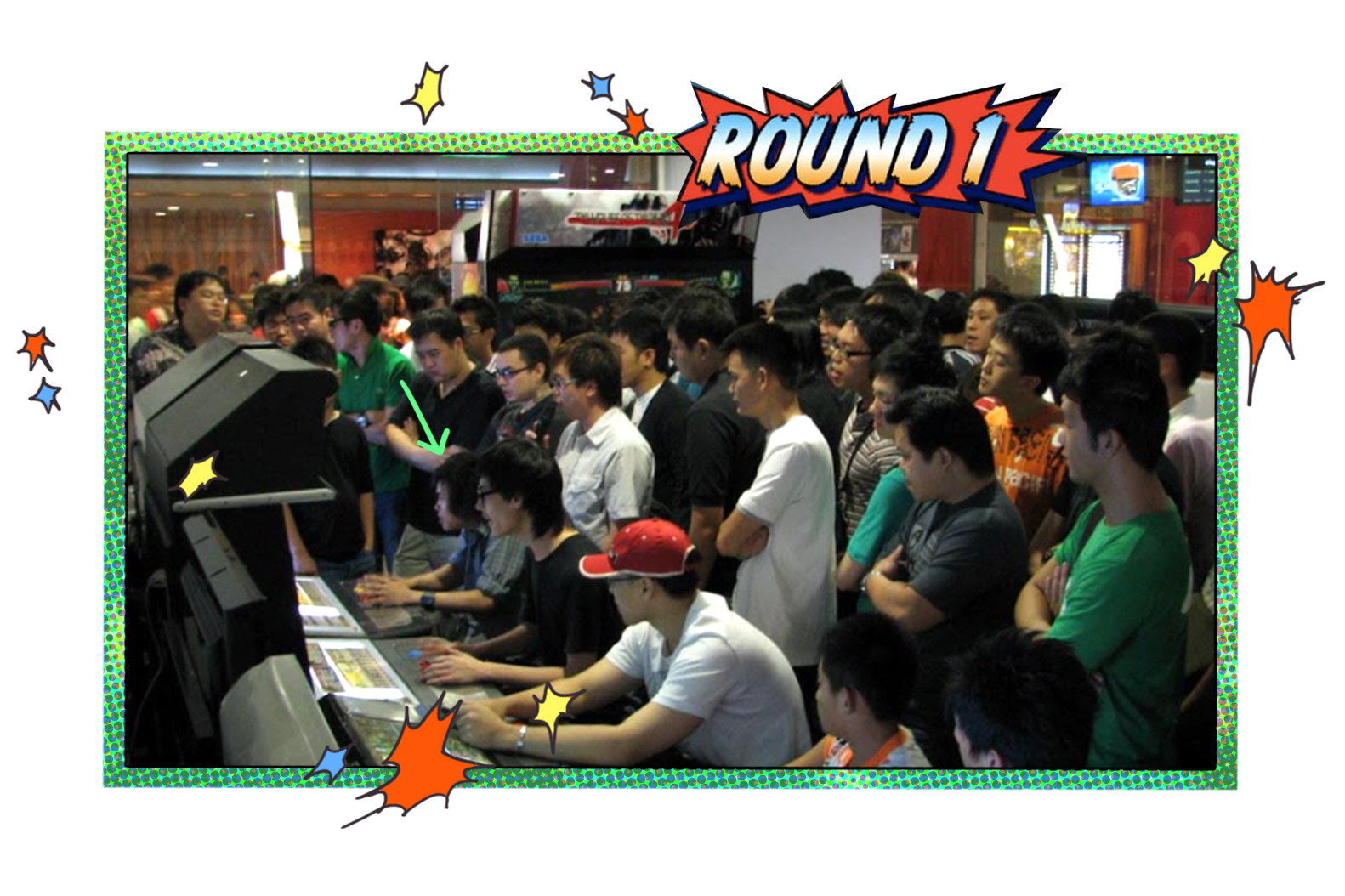
I went on playing competitively through the years, and even got to face some of the best in the business like Daigo Umehara.
In time, I decided to run tournaments. I partnered with the arcade, started a blog and organised tournaments where I would commentate on the action.
That community started to really grow. We were featured in a couple of gaming magazines and even started doing international tournaments.
Eventually, I started running a company that ran events for fighting games and streamed on Justin.tv (the predecessor to Twitch). That was some 13 years ago!
STIGMA IN THE SANCTUARY
But in church, gaming felt like a taboo topic that I couldn’t really talk about.
It was always about addiction, how it pulled kids away from their studies or had a negative influence. Of course, there’s truth to all of these things — but there is also good on the other side.
I knew a young adult who shared with someone in church that what got him through his depression was his Rainbow Six Siege community that he had with a couple of guys in church.
That person proceeded to give him a 15-minute lecture on why gaming is bad. My friend was so deflated after that! It’s so sad.
I believe there are many people in church like my friend who feel like they have to compartmentalise their gaming life and their faith.
I would like to change that.
God wants to redeem. God wants to use us when we become Christians — even our pasts.
I personally struggled to “come out” about gaming.
It’s almost as if I needed to be a bit careful with the people I talk to about my gaming hobby because they might have a negative impression of me.
It was something I kind of had to suppress. That felt weird because I don’t think we’re supposed to be like that. I don’t think that’s how God works.
God wants to redeem. God wants to use us when we become Christians — even our pasts. He wants to use all of us for His glory and to reach people.
GOD & NEXT GEN
That’s why I founded God and Games (G.G.).
I came to realise that God accepts us, and I’m also hoping to make it easier for the next generation.
Gaming can be special because you can have shared experiences with friends — both the highs and lows. Even in church, the first cell group I led connected over games.
We have a unique opportunity to have an experience together with people online that very few other avenues provide.
The trick is, how do you do that? How do you be intentional about that?
I’ve always believed in the 80-20 rule. If 80 per cent of a certain group has a certain culture, the other 20 per cent will follow it.
And so, if the 80 per cent can figure out what it means to be intentional in building life through gaming, then I believe that non-Christians who take part in our online communities would see something different.
One example: We had five of us in the Rainbow Six Siege team. One of the guys in our team wasn’t Christian.
But sometimes, in the middle of the matches, we’d simply ask each other how we were doing. Like, how’s life? And we’d offer to pray for one another over Discord.
It wasn’t preachy, but our friend got it. And sometimes he would join in too.
I think we are his only real connection to a Christian community at the moment. And there’s potential in that!
If 80 per cent of a certain group has a certain culture, the other 20 per cent will follow it.
There are also a lot of people on our church’s Discord server, who are folks whom — if not for games — we would have a very hard time having conversations with otherwise.
In the normal church setting, when you go near some people, they would just move away from you. They don’t want to talk to you. They’re afraid you’re going to give them some “spiritual conversation”.
But over games, there’s a common interest and platform. I’ve made connections with people who accepted me after I started rattling off different Hearthstone cards to them. I was in. One of us.
So, it’s a language. When you show people that you understand exactly what they’re talking about, that gives you a big opening into their life.
FIGHTING FOR FELLOWSHIP
Nowadays, churches are struggling to connect with the next generation. We’re trying to crack our head with urban missions and all that kind of stuff.
But I think the struggle lies in how we are very programmed in our churches. You only experience things through a very nice, neat programme.
American Christian rapper Lecrae talks about this.
Think of someone who, through a church’s work, hears the gospel on the streets. And then that person wants to become a missionary for God. So the church puts him in a Bible school, gives him a shirt and tie.
And then, Lecrae says, by then all that person’s friends would have died.
He doesn’t speak the language of the streets anymore. He speaks Bible school language: Christianese. You’ve lost that missionary.
I feel the natural pull of Christian culture or church culture is to be like: “Okay, you’re Christian now, so here’s your new identity. You’re supposed to do Christian things. Non-Christian things — you leave behind.”
THE DIGITAL FRONTIER
I do think the Church has sometimes had this very adversarial view of media. It has also been behind the curve when it comes to new media.
And so, with G.G., I’m hoping that one of the meta things we can achieve is to just learn what it means to be a little bit ahead of the curve.
Let’s learn to get ahead rather than always being behind and having to grudgingly accept: “Okay lah, we have to talk about this. Okay fine, we have to have a social media presence.”
I’m hoping the Church can be a leader in figuring out what it means to be human in an increasingly virtual and customisable world.
So, I think this is a nice exercise. I would love for the Church to — when the next trend comes — be able to identify it and think about what is needed to be missional in that space.
I’m hoping the Church can be a leader in figuring out what it means to be human in an increasingly virtual and customisable world.
After all, interactions are becoming more virtual. Churches have had to grapple with this — COVID-19 forced all of us to. We’ve had to legitimise virtual connections.
It’s like that Batman movie, where Harvey Dent says: “You either die a hero, or you live long enough to see yourself become the villain.”
At the end of the day, I hope G.G. will be a community where we can show the world what it means to be positive gamers — healthy, balanced people.
I hope that it’ll be a space where we as Christians develop the ability and nous to learn how to pick up the good things from games and manage the bad.
We must be able to consume and engage with media wisely, filtering the bad and taking in the good. This is low-hanging fruit.
The even-better-hanging fruit is figuring out some tough questions.
How are we building each other up? How do we deal with losses? How do we deal with messing up? How do we deal with a person who is not carrying his weight?
Finally, I hope this will also be a generational-bridging exercise, as more churches hopefully come on board and are supportive of this.
I am praying that the younger generation would be able to see the Church acknowledge this huge part of their lives where they spend their time in.
Where much laughter and joy can be had.
Lang Tien would love to get in touch with anyone interested in connecting with gamers in their churches. He is available to consult with leaders, or speak to youths and young adults about gaming. Drop him an email at [email protected].
Also, all are welcome to join G.G.’s Discord server which aims to unite gamers from different churches! Their first event is a “Pastors Play” stream on Twitch at 8.30 pm on July 27 (Tuesday), when a couple of pastors and young people will be playing Among Us together.
- What’s your take on gaming? When does it become harmful?
- What does digital discipleship look like to you today?
- How can you be intentional about sharing God’s love with a world that’s increasingly connected?


